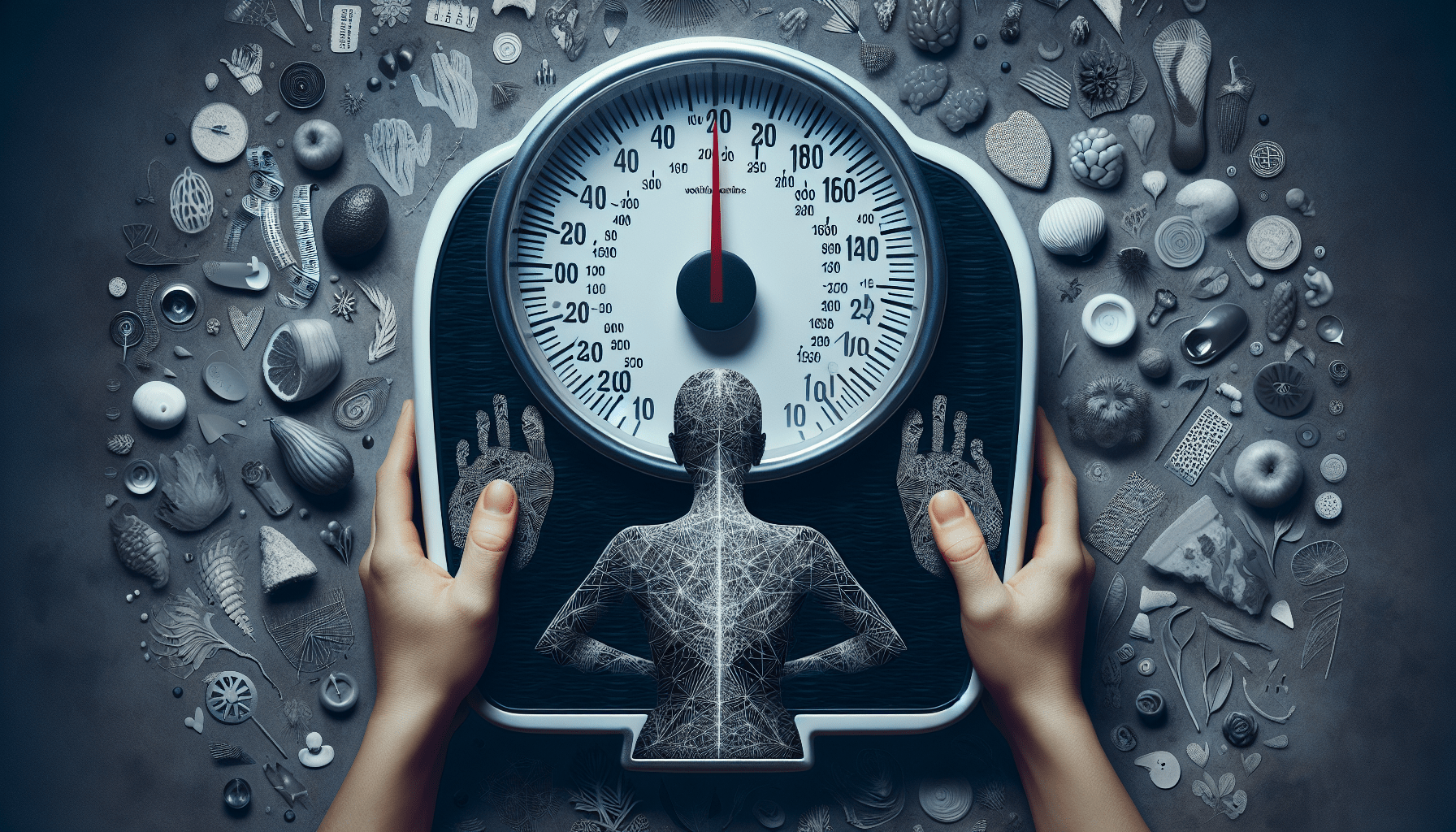Being underweight may seem like a desirable state for some people, but there are several underlying health problems associated with it. In this article, we will explore the potential health issues that individuals who are underweight may face. From nutrient deficiencies to weakened immune systems, understanding these concerns can shed light on the importance of maintaining a healthy weight for overall well-being. So, if you or someone you know falls into the underweight category, it’s essential to be aware of the potential risks and take steps towards a balanced lifestyle.

Malnutrition
Lack of Essential Nutrients
Malnutrition can result from being underweight, meaning that your body is not getting the necessary amount of essential nutrients it needs to function properly. Essential nutrients include proteins, carbohydrates, fats, vitamins, and minerals. Without an adequate intake of these nutrients, your body can suffer from a wide range of health problems.
Vitamin and Mineral Deficiencies
One of the major consequences of malnutrition is the deficiency of vitamins and minerals. These micronutrients play crucial roles in maintaining optimal health. When you are underweight, your body may not be able to absorb enough of these nutrients, leading to deficiencies. Vitamin deficiencies can result in weakened immune system, impaired growth and development, and hormonal imbalances. Similarly, mineral deficiencies can contribute to decreased energy levels, osteoporosis, and digestive issues.
Weakened Immune System
Increased Susceptibility to Infections
When your body lacks the essential nutrients due to malnutrition, your immune system becomes weakened, making you more susceptible to infections. Your immune system relies on vitamins and minerals to help fight off harmful pathogens. Without an adequate intake of these nutrients, your immune system’s ability to defend against infections is compromised.
Delayed Healing of Wounds
In addition to increased susceptibility to infections, malnutrition can also impair the healing process of wounds. Essential nutrients such as vitamin C, zinc, and protein are essential for proper wound healing. When your body lacks these nutrients, it becomes more difficult for wounds to heal effectively and in a timely manner.
Decreased Energy Levels
Fatigue and Weakness
Malnutrition can result in decreased energy levels, leaving you feeling fatigued and weak. When your body does not receive enough calories from food, it starts to rely on its energy stores, such as fat and muscle. However, prolonged malnutrition can deplete these energy reserves, leading to feelings of extreme fatigue and weakness.
Difficulty in Performing Physical Tasks
Due to the lack of energy caused by malnutrition, you may experience difficulties in performing physical tasks. Everyday activities such as walking, climbing stairs, or even carrying groceries can become challenging. The decreased energy levels and weakness can greatly affect your overall quality of life and limit your ability to engage in physical activities.
Impaired Growth and Development
Delayed Puberty
Malnutrition during childhood and adolescence can have long-lasting effects on growth and development. Lack of essential nutrients can delay the onset of puberty, which is a crucial stage of physical and sexual development. Delayed puberty can affect bone development, hormone production, and overall growth, leading to potential long-term complications.
Reduced Muscle Mass
Adequate protein intake is crucial for the maintenance and growth of muscle mass. When your body is undernourished, it may not receive enough protein to support muscle growth. As a result, you may experience a reduction in muscle mass, leading to weakness and difficulties in performing physical tasks. Reduced muscle mass can also impact your metabolism, making it harder to maintain a healthy body weight.

Hormonal Imbalances
Irregular Menstrual Cycles
Malnutrition can disrupt the hormonal balance in the body, leading to irregular menstrual cycles in women. Insufficient calorie intake and vitamin deficiencies can interfere with the normal functioning of the reproductive system, causing hormonal imbalances. Irregular or absent menstrual cycles can have implications for fertility and overall reproductive health.
Reduced Fertility
Malnutrition can also impact fertility in both men and women. In women, inadequate nutrient intake can disrupt the hormonal balance required for ovulation and reproductive health. In men, malnutrition may lead to reduced sperm count and impaired sperm quality. These factors can significantly affect fertility and the ability to conceive.
Osteoporosis
Decreased Bone Density
Lack of essential nutrients, particularly calcium and vitamin D, can increase the risk of developing osteoporosis. Osteoporosis is a condition characterized by decreased bone density and an increased susceptibility to fractures. When your body is undernourished, it may not receive enough calcium and vitamin D, which are vital for maintaining strong and healthy bones.
Increased Risk of Fractures
With decreased bone density, the risk of fractures significantly increases. Even a minor fall or injury can result in a fracture when your bones are weakened due to malnutrition. Fractures can have long-term consequences and impair your mobility and overall quality of life.

Cardiovascular Problems
Low Blood Pressure
Malnutrition can contribute to low blood pressure, also known as hypotension. Low blood pressure can cause dizziness, lightheadedness, and fainting episodes. In severe cases, it can lead to life-threatening complications. Proper nutrition and a balanced diet are essential for maintaining optimal blood pressure levels.
Weakened Heart Muscles
A lack of essential nutrients can also weaken the muscles of the heart, leading to cardiovascular problems. Your heart requires adequate nourishment to function properly. Malnutrition can result in weak heart muscles, which can affect the heart’s ability to pump blood efficiently and lead to various cardiovascular conditions.
Digestive Issues
Poor Absorption of Nutrients
Malnutrition can negatively affect your digestive system, leading to poor absorption of nutrients. When your body is undernourished, it may not have the necessary enzymes and digestive juices to properly break down and absorb nutrients from food. Poor absorption can further contribute to nutrient deficiencies, perpetuating the cycle of malnutrition.
Constipation and Bloating
Digestive issues such as constipation and bloating are common symptoms of malnutrition. When your body lacks fiber and other essential nutrients, it can lead to sluggish bowel movements and difficulty in passing stools. This can cause discomfort and further exacerbate the digestive issues associated with malnutrition.

Mental Health Concerns
Depression and Anxiety
Malnutrition can have a significant impact on mental health, contributing to the development of depression and anxiety. The lack of essential nutrients can affect brain function and neurotransmitter production, leading to imbalances that can contribute to mood disorders. Additionally, the physical effects of malnutrition can also contribute to feelings of low self-esteem and increased stress levels.
Body Image Issues
Being underweight can also lead to body image issues and a negative perception of oneself. Society often equates thinness with beauty and success, which can further perpetuate unhealthy eating habits and disordered eating patterns. Body image issues can have a profound impact on self-esteem and overall mental wellbeing.
Increased Mortality Risk
Higher Susceptibility to Diseases
Malnutrition significantly increases the risk of developing various diseases and health conditions. The weakened immune system, impaired organ function, and nutrient deficiencies associated with malnutrition make the body more vulnerable to infections, chronic diseases, and other health complications.
Reduced Overall Lifespan
The combination of health problems associated with malnutrition ultimately leads to a reduced overall lifespan. The increased mortality risk and the strain on the body caused by malnutrition can have long-lasting consequences. It emphasizes the importance of proper nutrition and maintaining a healthy weight to promote longevity and overall wellbeing.
In conclusion, malnutrition can have a detrimental impact on the body, leading to a wide range of health problems. From weakened immune system and decreased energy levels to hormonal imbalances and increased mortality risk, the consequences of malnutrition are far-reaching. It highlights the importance of adequate nutrition and maintaining a healthy body weight for optimal health and wellbeing. By making conscious and informed choices about your diet and seeking professional help when needed, you can ensure that your body receives the essential nutrients it needs to thrive. Remember, your health is your greatest investment, and taking care of your body should always be a priority.

